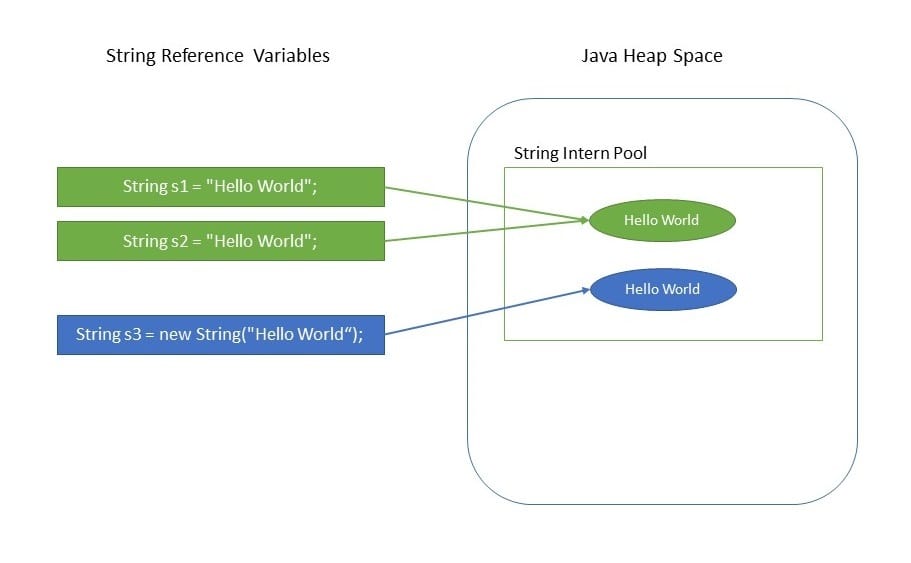What Is Immutable Strings and How It Functions
In the world of programs, understanding the idea of unalterable strings is extremely important for producing protected and robust applications. Immutable strings refer to strings that can not be changed after they are produced, ensuring data stability and predictability within the code.
The Essentials of Immutable Strings
Unalterable strings, as a fundamental idea in shows, are personality series that can not be altered once they are produced. This means that when a string is designated a worth, that value can not be changed. In languages like Python and Java, strings are unalterable things, resulting in numerous effects in terms of memory administration and data stability.
Among the essential advantages of immutable strings is that they supply a feeling of security in information adjustment. Considering that the web content of an immutable string can not be changed, it makes sure that the original data stays undamaged, lowering the risk of unintended modifications during program execution (Why are strings immutable in Java?). This building also streamlines debugging procedures, as programmers can rely on that when a string is specified, its worth will not be accidentally altered
Additionally, immutable strings facilitate efficient memory use. When a brand-new string is developed based on an existing one, as opposed to modifying the initial string, the brand-new value is stored separately. This approach enhances efficiency by reducing memory fragmentation and streamlining memory appropriation procedures. On the whole, recognizing the fundamentals of unalterable strings is essential for mastering shows principles and enhancing code effectiveness.
Advantages of Immutable Strings
Structure upon the safety and security and performance benefits of unalterable strings, their advantages include improving code reliability and streamlining concurrent programming tasks. By being immutable, strings can not be customized after production, which eliminates the danger of unexpected adjustments in the information they keep. This intrinsic immutability ensures that as soon as a string is created, its value continues to be continuous throughout the program's execution, decreasing the chances of insects triggered by unexpected alterations.
Additionally, unalterable strings add to code integrity by making it simpler to reason regarding the state of a program. Given that strings can not be changed, designers can rely on that a string will always hold the exact same worth, simplifying debugging and maintenance initiatives. This predictability results in extra reputable and secure codebases.

Execution in Programs Languages
Within various shows languages, the incorporation of unalterable strings is a fundamental aspect that affects how data is dealt with and adjusted within code frameworks. The implementation of immutable strings varies across different programming languages, with each language using its own devices to support this principle.

On the other hand, languages like C and C++ do not have integrated support for immutable strings. Designers in these languages should manually implement immutability by applying rules explanation within their code to stop direct alterations to string things.
Finest Practices for Working With Immutable Strings
When dealing with immutable strings in shows languages like Java and Python, sticking to best techniques ensures protected and reliable data control. One of the essential best practices is to make use of StringBuilder or StringBuffer as opposed to straight manipulating strings, particularly when handling comprehensive concatenation procedures. These classes give mutable options for string manipulation, additional reading helping to stay clear of unneeded memory allowances and enhancing performance.
Furthermore, when functioning with delicate data such as passwords or API keys, it is crucial to avoid keeping them as ordinary message in unalterable strings. Making use of protected storage systems like char ranges or specialized collections for managing delicate details assists reduce security threats linked with unalterable strings.
Real-world Applications and Instances
Checking out practical applications of immutable strings in numerous markets exposes their significant effect on information honesty and system integrity. In the medical care market, immutable strings play a critical function in making sure the protection and discretion of individual information. By preventing unauthorized alterations to sensitive details such as clinical records and prescriptions, unalterable strings assist preserve conformity with strict personal privacy laws like HIPAA.
Economic establishments likewise take advantage of the immutable nature of strings to improve the safety and security of consumer data and purchase records. Unalterable strings assist stop fraud and unauthorized changes to financial information, providing a durable protection against cyber hazards and making sure the depend on and confidence of clients.

Conclusion
To conclude, unalterable strings are dealt with and stable sequences of personalities that provide benefits such as string security and enhanced performance in programming. go right here They are carried out in numerous shows languages to make sure data integrity and safety and security. Finest practices for working with immutable strings include preventing direct modifications and utilizing methods that return brand-new string items. Real-world applications of immutable strings include data encryption, caching, and string manipulation jobs.
Unalterable strings refer to strings that can not be changed after they are developed, ensuring information integrity and predictability within the code. When a new string is developed based on an existing one, rather than changing the original string, the brand-new value is saved individually.In languages like Java and Python, strings are immutable by default, indicating that once a string item is created, its worth can not be altered - Why are strings immutable in Java?. Best methods for functioning with unalterable strings include staying clear of direct modifications and using techniques that return brand-new string items. Real-world applications of immutable strings consist of information encryption, caching, and string adjustment jobs
Comments on “Why Are Strings Immutable in Java? Security and Efficiency Perks”